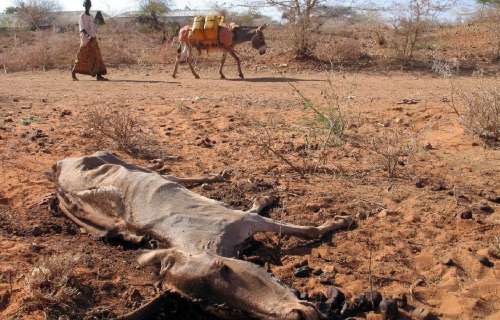JOHANNESBURG: In a recent report, the International Monetary Fund (IMF) has issued a stark warning, emphasizing the devastating consequences that climate change could inflict upon vulnerable nations across the globe.
Released , the IMF report highlights the perilous situation wherein climate change, although not the sole instigator, significantly exacerbates conflicts, thereby complicating issues such as hunger, poverty, and displacement. It underscores that climate change’s impact could lead to an alarming rise in conflict-related deaths by 8.5 percent in fragile and conflict-prone states (FCS) and a staggering 14 percent increase in deaths in regions experiencing extreme temperature spikes by the year 2060.
As per the World Bank’s categorization, approximately one billion individuals reside within the boundaries of 39 nations, and a substantial 43% of the global population finds itself categorized as residing in FCS regions. Significantly, over half of these nations belong to the African continent, grappling with a disproportionately heavy burden of climate change.
The IMF’s analysis further cautions that the plight of these vulnerable countries could lead to more than 50 million people facing hunger by 2060, owing to reduced food production and soaring grain prices. The economic losses stemming from climate change are notably graver and persist longer in these susceptible nations than in their more resilient counterparts.
In a separate statement, the IMF underscores the utmost importance of leaders convening at the inaugural African Environment Summit in Kenya next week to address these pressing issues confronting vulnerable nations. The IMF’s blog post underscores a sobering statistic: natural disasters affect three times more people annually in fragile states compared to more stable regions. Moreover, these disasters displace populations in vulnerable nations at more than twice the rate seen in others.
By the year 2040, these nations could witness an average of 61 days annually with temperatures exceeding 35 degrees Celsius, a fourfold increase compared to other countries. The IMF underscores that extreme heat and the concomitant impacts of climate change pose severe threats to human health while undermining productivity and employment in crucial sectors like agriculture and construction.














